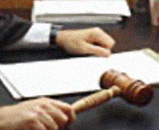Code of Ethics for Expert Witnesses
IV. Ex Parte Communications
A. An expert shall not communicate with adverse counsel except through the process of formal discovery and judicial procedure.
B. An expert witness shall not engage in ex parte communications with the judge or jurors in a case.
V. Conflicts of Interest
A. An expert may ethically accept concurrent engagements that are both favorable and adverse to the same party, providing the opinions are logically consistent and can be explained. An expert should not accept conflicting engagements, either concurrently or successively, that are factually related.
B. An expert may not switch sides, even following discharge or release, if to do so would violate the original client's reasonable expectation of confidentiality. This will depend on a number of factors, including the extent of communications between the expert and the original client and the nature and types of information the client provided to the expert.
C. An expert witness should disclose any interests the expert may have in the case or its outcome.
VI. Professionalism
A. An expert shall accept only engagements that are within the expert's area of competence and training. An expert shall not purport to be an expert in matters in which the expert has limited knowledge or experience, or in any matter in which professional peers with the same level of knowledge and experience would not hold themselves out as experts.
B. An expert shall ensure that all tests, analysis and other operations leading to conclusions and opinions are based on adequate and accepted procedures within the profession. An expert who uses procedures that are considered experimental or controversial should so say in rendering any report or conclusions.
C. An expert witness shall be clear about the strength of the expert's conclusion. An expert witness shall indicate when an opinion is inconclusive because of insufficient research or insufficient data.
D. An expert witness shall update an opinion in light of new information if there is continuing reliance on the opinion. If an expert witness changes an opinion on a material matter after providing a report to the client, the expert shall promptly provide the client with a supplementary report explaining the change.
E. An expert should strive to understand the standards applicable in the jurisdiction to the use and admissibility of an expert's opinion.
F. An expert's written report should reflect the expert's independent analysis and opinion. While an expert and the retaining attorney may discuss the contours, scope and subjects of the report, the final product must conform to the expert's findings and conclusions.
G. An expert witness shall not conceal or destroy documents or evidence that are or may be discoverable.
H. An expert shall not knowingly present opinions or testimony that are false or misleading.
I. An expert witness should not accept the client's characterizations or conclusions without exercising due diligence by inquiring into the underlying facts.
J. The expert witness shall provide opinions that are reasoned and based on the expert's own analysis. The expert shall not unreasonably exclude issues that are material to the client's purpose and within the expert's expertise.
